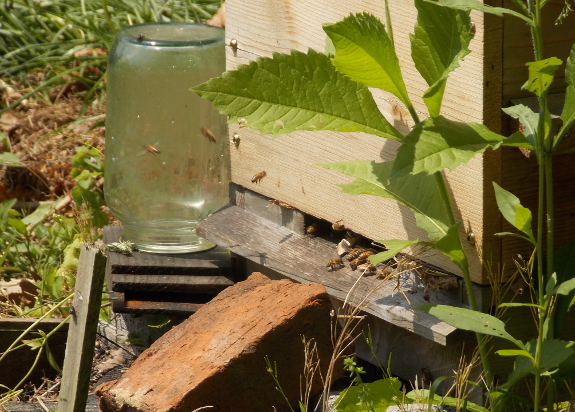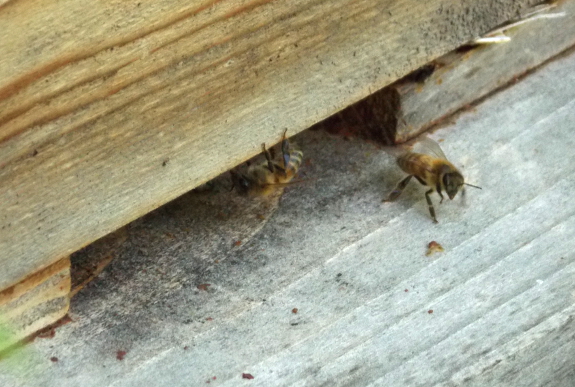
Deciphering hive clues

It's amazing how much you can learn about a hive without lifting the lid. After splitting our Warre hive in two,
I was a bit worried about the colony I'd moved to a new location since I
could barely hear the bees inside when I pushed my ear up against the
side. I knew that all of the foragers would have scurried home to
the mother-hive location, but was it possible that the daughter hive
might contain so little brood that everyone flew the coop?
I was getting nervous
enough that I was on the verge of opening up the hive, Warre rules be
darned, but I'd waited long enough that there was no need. Worker
bees go through a specified series of jobs, with the youngest workers
cleaning out brood cells, 3-to-11-day-old workers tending brood,
12-to17-day-old workers building comb, and older workers heading out of
the hive to forage. A week after the hive split, the first
foragers began heading out of the daughter hive, and I could see that
many were carrying back pollen! That was a clue that not only was a
colony still living in the hive, there was also uncapped brood present
to eat that pollen.

Honeybees feed pollen to
their young until the cells the baby bees live in are capped over (which
allows the youngsters to change into adults uninterrupted). This
capping occurs on day 7.5 for baby queens, on day 9 for workers, and on
day 10 for drones. So, eleven days after my split, I should be
able to figure out which hive kept the queen by looking at both
entrances for pollen-carriers --- the one that's still bringing in
pollen kept the queen. After that, it will be another two-week
wait while the other hive finishes raising and mating their queen before
I should see pollen entering the colony that lost their queen in the
split.
If I had my druthers, I'd hope that the daughter hive is the one who
kept the queen. They got slowed down by losing all of the
foragers, so it's only fair that they get to bring new bees online
faster than the other hive. Only time will tell whether my wishes
came true.
Want more in-depth information? Browse through our books.
Or explore more posts by date or by subject.
About us: Anna Hess and Mark Hamilton spent over a decade living self-sufficiently in the mountains of Virginia before moving north to start over from scratch in the foothills of Ohio. They've experimented with permaculture, no-till gardening, trailersteading, home-based microbusinesses and much more, writing about their adventures in both blogs and books.
Want to be notified when new comments are posted on this page? Click on the RSS button after you add a comment to subscribe to the comment feed, or simply check the box beside "email replies to me" while writing your comment.
